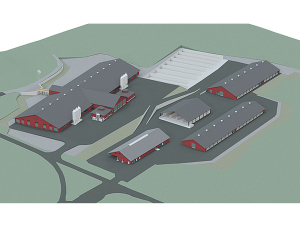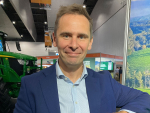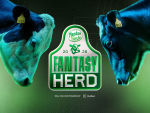Milking and technology specialist DeLaval has begun an 18,000m² rebuild at its Hamra Farm in Sweden.
The upgrade and investment are centred around more modern and sustainable dairy production, including new barns, four new automatic milking robots, DeLaval VMS V300, and more digital solutions to improve animal health, quality, and efficiency.
The cows at Hamra produce an average of 12,200kg energy corrected milk (ECM) per cow, per year, and with this new investment, DeLaval hopes to increase that number even further. The company says that Hamra Farm has always promoted animal welfare and high quality as two of its main operating criteria.
Johan Bjurevall, managing director at Hamra Farm says it has always had a big focus on animals and their well-being.
“That is part of our philosophy – good animal husbandry and long-term planning often result in good yield. We are incredibly happy with the new possibilities the investment gives us.
“To be part of planning and building such a modern farm with a longterm focus is fantastic.”
The investment means doubling the number of cows, which the company said it has carefully planned during the past few years. The new barns will house 550 dairy cows and 500 young stock of the Swedish red cattle breed and Holsteins. In addition to the farm being run as a commercial dairy operation, it is also used as a test facility where DeLaval products are tested and developed, alongside being a demonstration farm for visiting customers.
DeLaval says the investment is being made to continue the development of modern and sustainable milk production, while continuously finding new and innovative solutions for more sustainability, with a high focus on animal health.
This is hoped to be achieved with the help of automatic solutions, more digital systems that will give the farmers important information at the right time, and good animal knowledge and advice.
The plan is to have the first animals move in at the beginning of 2024.


















